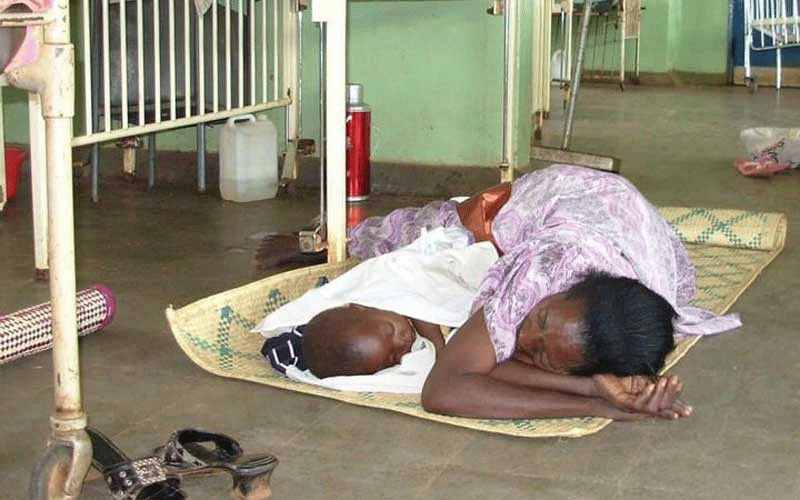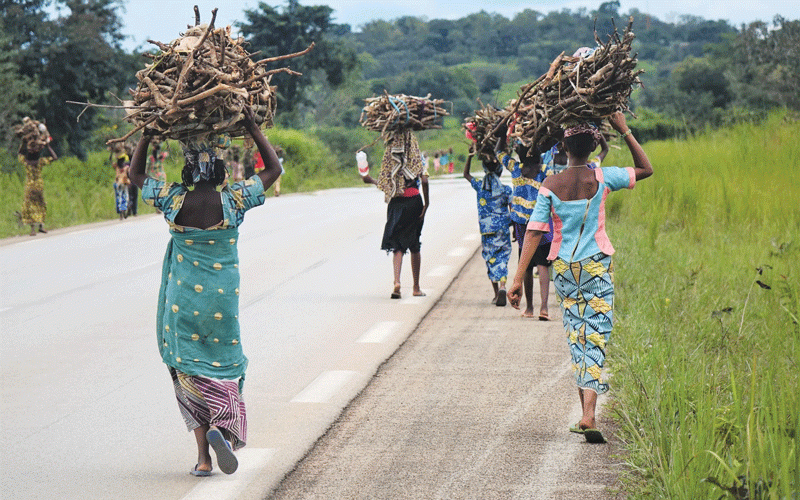
It is 2025 in Zimbabwe. The sun still rises over the ruins of a broken economy, and the rains come, unpredictable, sometimes too little, often too much.
In this land of breathtaking beauty and bruised possibility, women carry the weight of a country held hostage by corruption, economic despair, and systemic inequality. But amid the debris of broken promises and failed leadership, women are not giving up. No, we are digging in, feet firm in the soil of our foremothers’ resistance, hearts tuned to the rhythm of collective liberation.
I write from a place of deep rage, but also from deep love. Love for my people. Love for the tenacity of the woman who walks 12 kilometres to the clinic with her baby on her back. Love for the girl who sells freezits by day and does her homework by candlelight at night. Love for the grandmother raising a generation not born of her womb, but born of her necessity. This is Zimbabwe in 2025: a nation on edge, yet rich in the untold stories of women who are not only surviving but rebuilding with vision, with grit, and with feminist power.
Let us be honest: Zimbabwe is in crisis. The cost of living has spiralled out of control. Inflation is back in crazy digits, with the Zimbabwe Gold (ZiG) constantly devaluing, leaving prices of basic commodities unaffordable and access to basic services a luxury.
Hospitals are barely functioning. Teachers are underpaid and demotivated. Electricity comes and goes with no pattern. And in all this, it is women who suffer the most. The informal economy, where over 80% of Zimbabweans survive, is dominated by women.
Yet, these same women are criminalised, harassed, and excluded from meaningful economic decision-making. From Mbare to Mutoko, we see market women forced to pay bribes just to sell tomatoes, their livelihoods disrupted by arbitrary council raids and corrupt enforcement.
In rural Zimbabwe, climate change has ravaged what little food security remained. Droughts have left families hungry, with women forced to skip meals so their children can eat. Climate justice is gender justice. And yet, too often, women are left out of the policies and spaces where solutions are imagined. Technocrats discuss “resilience” in hotel conference rooms, while rural women innovate it daily in dusty fields with no irrigation. Meanwhile, gender-based violence has become a silent pandemic, stretching across homes, workplaces, and digital spaces.
And adolescent girls, particularly in marginalised communities, are experiencing rising rates of child marriage, transactional sex, and school dropouts, simply because our systems continue to fail them. But this is not a pity story. This is a story of power, power reimagined, redistributed, and reclaimed.
- Mavhunga puts DeMbare into Chibuku quarterfinals
- Bulls to charge into Zimbabwe gold stocks
- Ndiraya concerned as goals dry up
- Letters: How solar power is transforming African farms
Keep Reading
In every crisis lies opportunity. We are at an inflection point, and Zimbabwean women must seize the moment. Not through permission from patriarchal systems, but by disrupting those systems altogether. Ours is not the time for timid reforms. Ours is the time for radical reimagination, of leadership, of economics, of justice. We have seen what happens when women rise. When women lead water cooperatives in Bikita.
When they create safe spaces for girls in Epworth. When they form budget monitoring groups in Hwange and demand accountability from local councils. When women journalists expose corruption.
When feminist lawyers defend the rights of informal traders. When queer women claim their visibility in spaces designed to exclude them. This moment demands a new kind of leadership, feminist leadership. Grounded, inclusive, visionary. Not the politics of strongmen and messiahs, but the politics of collective care, community power, and radical truth-telling. Feminist leadership is about shared power, not domination, it is about healing, not hurting.
Let us not romanticise struggle. The road is rough. But there are concrete ways Zimbabwean women can assert power in this moment, without waiting for external saviours.
Build economies of cooperation
Instead of chasing elusive jobs in a broken system, we must build our own. Women are already leading savings clubs (mukando), running backyard poultry projects, and setting up digital hustle networks. Let’s formalise these.
Let’s build feminist cooperatives, agroecological farming collectives, and women-run e-commerce platforms. Let’s advocate for gender-responsive budgeting in every council, demanding transparency and inclusion in resource allocation.
Feminist economics must move from theory to tangible transformation.
Organise politically
It is not enough to be active on WhatsApp or X. We must organise! We need women-led political education that demystifies power. Let’s build movements that start in the market stalls, the churches, the borehole queues.
Let’s support young women to run for local office. Let’s reclaim women’s leagues from tokenism. We are not decoration.
We are decision-makers. And our feminism must be loud, disruptive, and strategic. We must disrupt spaces that were never designed for us and redesign them for all.
Hold systems accountable
We must name the injustice. File the lawsuits. Petition Parliament. Flood the streets, when safe. Use digital tools to expose rot. Let’s build legal clinics for women. Document violations.
Demand justice for survivors of violence. Push for laws that protect informal workers, queer people, and girls. And when the law fails, let’s create community justice mechanisms that centre healing and dignity. No one is above accountability, not the state, not the church, not the donor.
Centre girls in the struggle
Adolescent girls must not be an afterthought in our liberation agenda. We must protect their right to education, bodily autonomy, and leadership. Let’s build feminist schools. Let’s advocate for comprehensive sexuality education. Let’s mentor girl leaders.
Let’s ensure girls have access to the internet, to dignity kits, to political platforms. The future belongs to them but only if we make space for their voices now. A feminist future is intergenerational or it is nothing at all.
Make joy and wellness political
Too often, activists burn out. We lose warriors to despair. Our movements must be places of healing. Let’s normalise therapy, rest, dance, and spiritual renewal. Feminist joy is not frivolous, it is a radical act of resistance in a world that wants us broken.
We must love each other fiercely and create spaces where our fullness is welcomed. Our wellbeing is not a luxury, it is our power source.
I refuse to accept that our future must look like our past. We are not destined to suffer. We are not born only to endure. We are born to lead, to build, to thrive. Zimbabwean women, rural and urban, young and old, cis and queer, able-bodied and not, have the vision. We have the strategies.
What we need now is the space and the solidarity. The international community must stop seeing us as perpetual victims and start resourcing our feminist organising. Donors must fund long-term, flexible work, not just workshops and reports. We need investments in systems, in movements, in joy.
And we need our government to prioritise women not only in rhetoric, but in budgets, policies, and power-sharing. Fellow sisters, comrades, and co-dreamers: Let’s not wait for a perfect moment. The moment is now. This messy, beautiful, dangerous moment.
Let us rise in all our power. Let us shape Zimbabwe in our image, just, joyful, feminist. Let us write a future our daughters will not need to escape from. Until then, let us keep spreading positivity (#spreadpositivity). We were here, becoming better, making our mark, and leaving our footprint as we make the world a better place!
- Chirenje writes in her personal capacity as a citizen of Zimbabwe. Twitter: @graceruvimbo; Facebook: Grace Chirenje; Instagram: @graceruvimbo.











